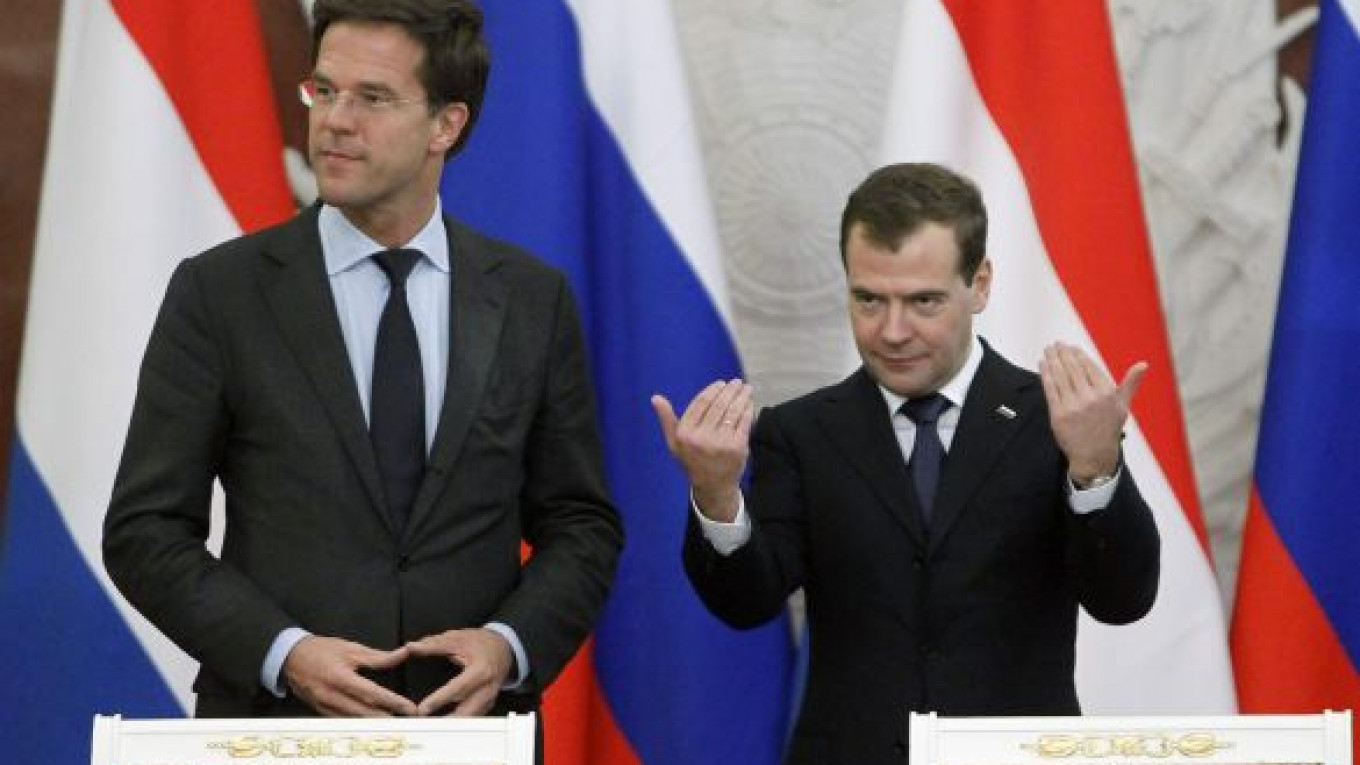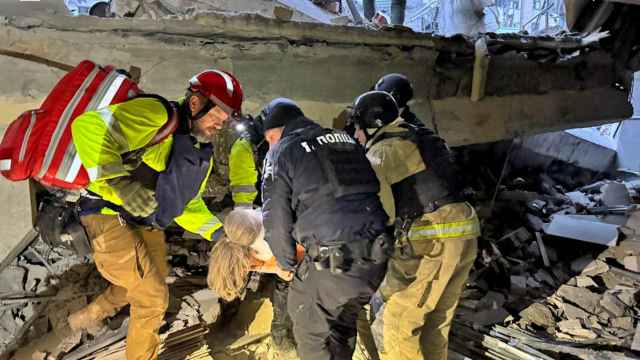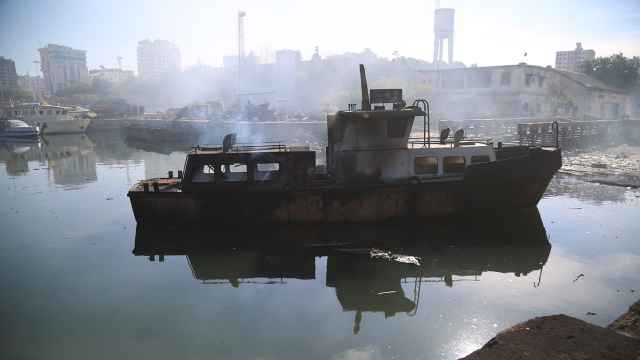President Dmitry Medvedev and Dutch Prime Minister Mark Rutte oversaw the signing of a $1 billion deal in Moscow on Thursday that sees oligarch-owned Summa Group take a controlling stake in a consortium to build a new oil facility in the port of Rotterdam.
The agreement provides a new outlet for Russian oil in Europe, and executives expressed hope that the new open-hub terminal will create a trading platform for Urals crude, the Russian oil benchmark.
Brent is the dominant international oil benchmark, through which two-thirds of the world's crude is priced. Urals closely tracks the price of Brent, but trades at a discount.
"We hope that by creating an open market, both physically and administratively, it will be possible to reduce this discount," Alexander Vinokurov, vice president of Summa Group, told reporters. "We are counting on a long-term partnership that will be as profitable for our company as the Russian Federation, the Netherlands and the European Union."
The 3 million cubic meters of storage provided by the terminal, scheduled for completion in 2015, will give the port of Rotterdam the capacity to re-export crude oil and refined oil products, said port president Hans Smits.
Summa Group, controlled by Ziyavudin Magomedev, whose fortune Forbes estimates at $750 million, will take a 75 percent stake in Shtandart, a company specially created to build the oil terminal. Dutch company VTTI, jointly owned by Swiss-based oil trader Vitol and state-controlled Malaysian shipping outfit MISC Berhad, will take the remaining 25 percent.
The port of Rotterdam has an annual trade turnover of 430 million tons, of which oil makes up 100 million tons. The new facility, called Tank Terminal Europort West, will occupy a 50-hectare site, one of the last big plots available within the port itself.
Russia exported 56.6 million tons of crude and 26.8 million tons of oil products to the Netherlands in 2010, according to data provided by the Kremlin.
The new project will increase the port's annual capacity for crude to 2 million tons of crude and 600,000 to 700,000 tons of oil products, Magomedev said, Reuters reported. Building work will be partially financed by loans.
Construction firms within the Summa Group are also involved in renovating Moscow's Bolshoi Theater and putting up a stadium in Kazan in time for the 2018 football World Cup.
Shtandart only just won the tender, Smits said, describing it as "a more or less narrow finish." He refused to confirm the number of proposals, but said it was more than two or three. Russian company Global Ports is known to have submitted a bid.
Crude for the new terminal will largely come by ice-class shuttle tankers from Russia's Primorsk port on the Baltic Sea, which currently handles 40 percent of the country's sea-based crude oil exports.
Trade links between Moscow and The Hague are significant. In 2010 alone, the turnover of trade between the two countries was $58.4 billion. The Netherlands is Russia's third-biggest external trading partner.
During an official visit Thursday, Prime Minister Rutte and Medvedev also met with Russian and Dutch businesspeople including billionaire Viktor Vekselberg and the heads of 15 Dutch multinational companies including Shell, Gasunie, Heineken and Philips. Representatives from some 70 midsized and small Dutch businesses were also in attendance.
Medvedev noted that both Shell and Gasunie have partnerships with Gazprom in Sakhalin and building and operating the Nord Stream pipeline across the Baltic Sea. He added that "active work" was under way to involve Dutch companies in tapping oil and gas resources in the area of northern "Yamal and the Kara Sea."
Rutte, who is in Russia on a three-day tour, met with Russian anti-corruption and human rights activists on Wednesday. He argued with whistleblower Alexei Navalny, who accused oil trader Gunvor, registered in the Netherlands, of money laundering, Radio Netherlands Worldwide reported. The Dutch government could take action against the company, part-owned by Gennady Timchenko, an acquaintance of Prime Minister Vladimir Putin, Navalny said.
Rutte replied he had "great respect and admiration" for Navalny's revelatory work, but there was no reason to suspect that Russian money was being laundered in the Netherlands, the radio station reported.
A Message from The Moscow Times:
Dear readers,
We are facing unprecedented challenges. Russia's Prosecutor General's Office has designated The Moscow Times as an "undesirable" organization, criminalizing our work and putting our staff at risk of prosecution. This follows our earlier unjust labeling as a "foreign agent."
These actions are direct attempts to silence independent journalism in Russia. The authorities claim our work "discredits the decisions of the Russian leadership." We see things differently: we strive to provide accurate, unbiased reporting on Russia.
We, the journalists of The Moscow Times, refuse to be silenced. But to continue our work, we need your help.
Your support, no matter how small, makes a world of difference. If you can, please support us monthly starting from just $2. It's quick to set up, and every contribution makes a significant impact.
By supporting The Moscow Times, you're defending open, independent journalism in the face of repression. Thank you for standing with us.
Remind me later.







